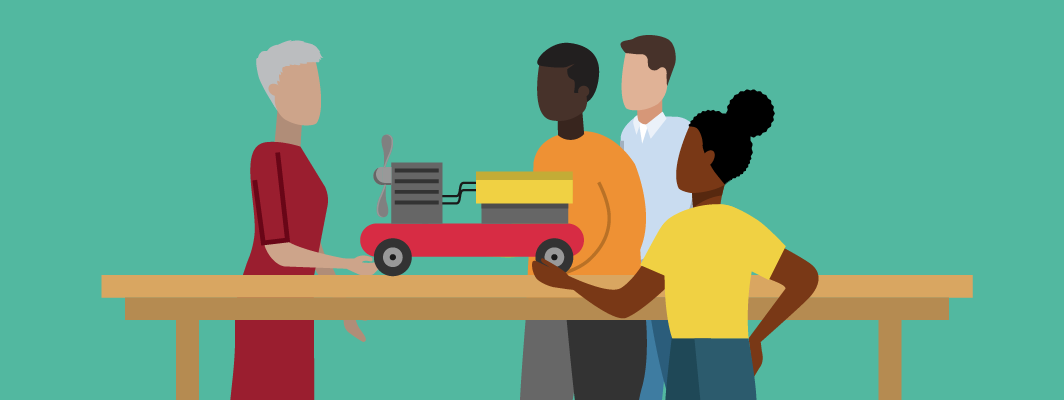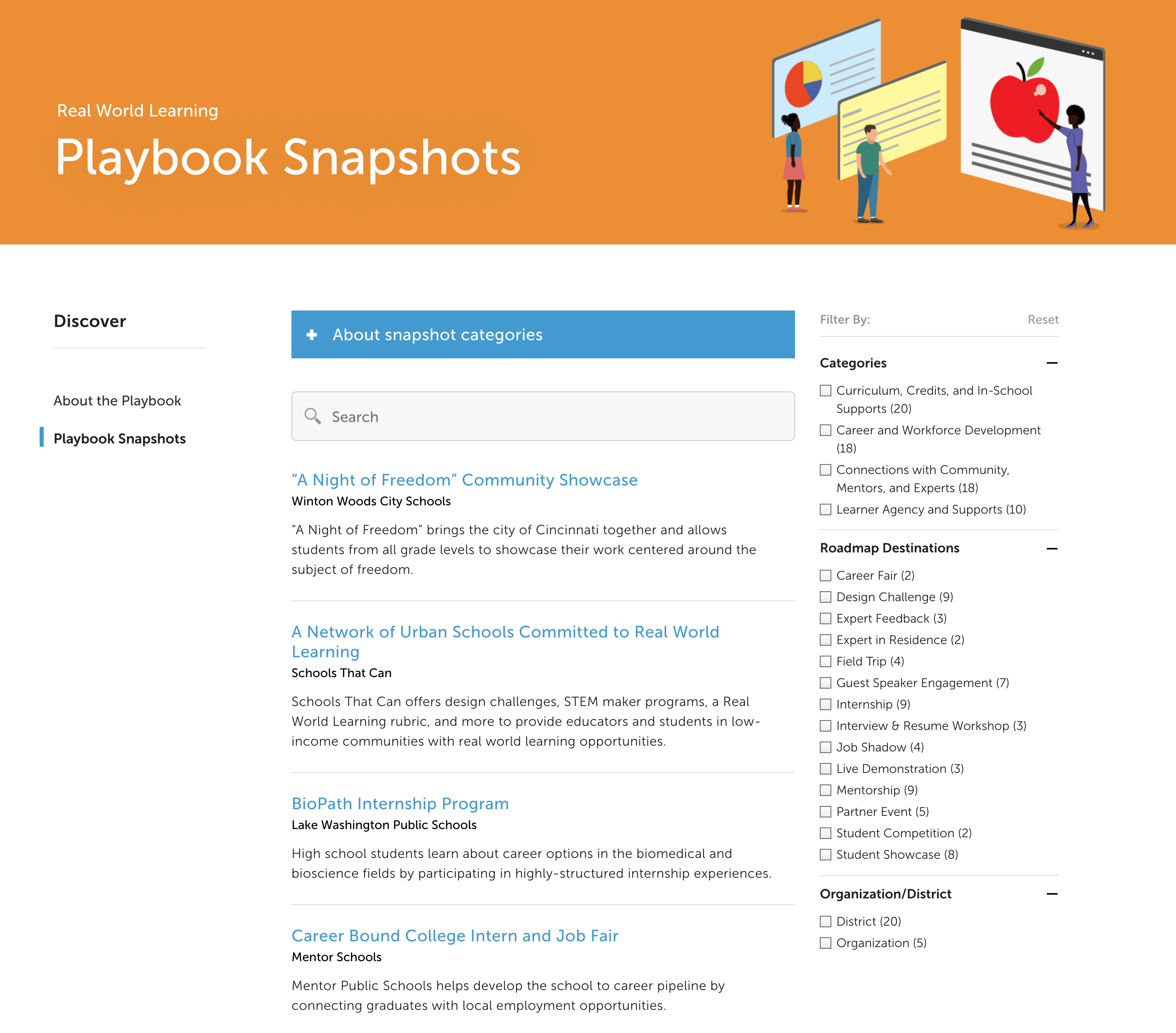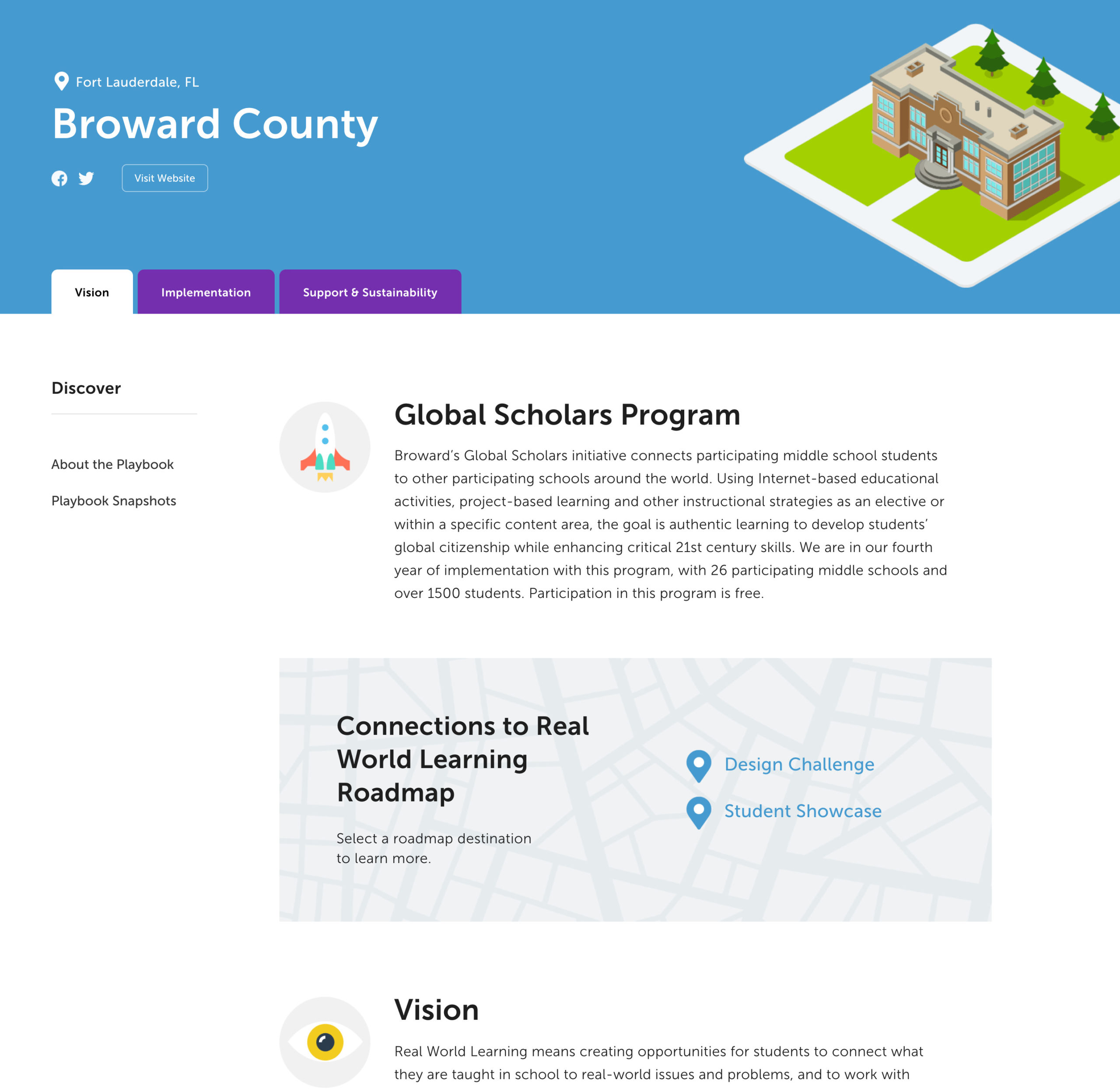
As the COVID-19 pandemic persists, schools and districts across the country are planning for the upcoming school year and the likely possibility of continued remote learning. This presents a unique challenge to schools who seek to keep students connected to the real world through community-based learning opportunities.
Real world learning engages students in life-relevant problems, projects, and experiences to develop their career awareness and readiness. Not only is it important, it’s more urgent now than ever—which is why we’re sharing our new Real World Learning Playbook.
Digital Promise has been working with districts, leaders, and researchers to identify pressing challenges in supporting real world learning opportunities for students since 2018. With continued interest in our real world learning tools, and a desire to extend the conversation beyond our schools and into our communities, the League of Innovative Schools and the Education Innovation Clusters networks launched a joint cohort in December of 2019. Over six months, the cohort dove into the partnerships and strategies needed to support equitable real world learning opportunities for students, both in and out of school. This collaboration culminated in the creation of the Real World Learning Playbook, which showcases lessons, programs, and events that have been implemented in schools and across communities.

The playbook contains snapshots from more than 20 school districts and organizations that have successfully implemented real world learning initiatives.
The lessons and best practices featured in the Real World Learning Playbook are meant to offer guidance and inspiration to districts that are committed to creating their own real world learning initiatives. The playbook contains snapshots from more than 20 school districts and organizations that have successfully implemented real world learning initiatives. The snapshots in the playbook are divided into four categories:
Each snapshot provides:
In Broward County Public Schools (Florida), their Global Scholars initiative connects middle school students to other participating schools around the world. In the context of COVID-19, this opportunity is especially powerful. “Our intended outcomes for real world learning include incorporating content standards while engaging students in authentic, real world tasks that involve more than simply giving them a ‘scenario’ that mimics a real world situation,” said Daryl Diamond, the district’s director of innovative learning.

Each snapshot provides relevant information on the initiative’s vision, implementation, and future direction.
The district accomplishes this through the use of internet-based educational activities, project-based learning, and other instructional strategies that develop students’ global citizenship while enhancing critical 21st century skills. Students ultimately leave the Global Scholars initiative with greater cultural understanding and global knowledge of the world around them.
In the upcoming school year, students everywhere will continue to navigate circumstances that are physically and socially challenging. It will be vital that schools offer learning opportunities that acknowledge the very real events occurring in students’ lives and support students as they consider what roles they want to take on in the future.
Ultimately, when students participate in learning opportunities that allow them to experience the real world, they’re able to build a deeper connection and commitment to the people, communities, and world around them. As an educator, an administrator, or a local community member, explore the Real World Learning Playbook and consider how you can meaningfully bring real world learning to students.
Want to learn more about implementing real world learning? Check out other Real World Learning resources from Digital Promise: